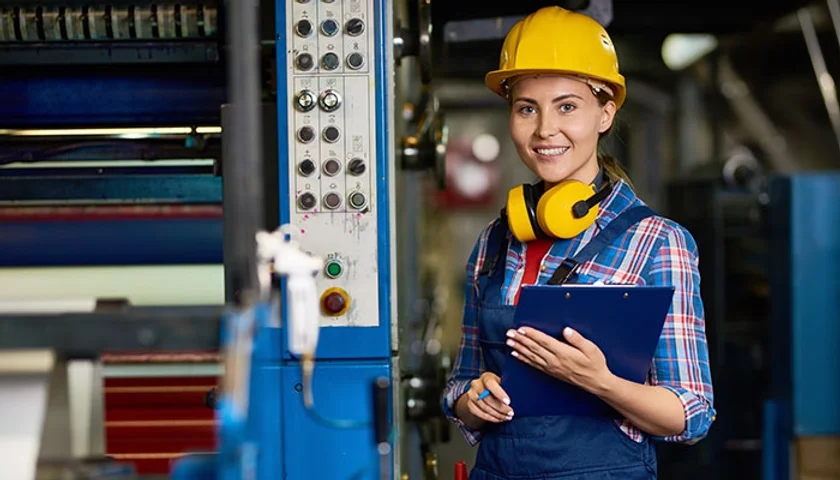Typically, when I say manufacturing people will think of an old manufacturing plant that is run by men. They will be a hot, sweaty and dirty place to work and if there is a women in the business they will be in the back office, shuffling a bit of paper around for her boss (who, by the way, has probably been in the business since joining as an apprentice and is highly unlikely to leave until he retires).
But what if I told you that this is not true and its all changing. Yes, by a greater difference there are a lot more men employed in Manufacturing than women, but women are finally coming out of that back-office paper shuffling position and levelling the playing field. Women are now studying more subjects such as engineering or manufacturing that typically they didn’t, employers recognising this are now being much more diverse with their workforce. Women are finally getting recognised for their contributions in Manufacturing and what they deserve (and when I say deserve, I don’t mean salary… that is a whole new subject matter and still divides option now).
You maybe reading this and thinking get to the point. But what is my point? My point is that women are underestimated and un-utilised in manufacturing. Even I think ‘male’ when someone needs my support in filling a vacancy for a role within Manufacturing and we need to change the way that we think. There is a whole talent pool of women out there that are just as capable of doing the same job as a man. I know it is wrong to automatically think that, but it is true! I must admit I do think that for a woman to enter the word of manufacturing it could be intimidating, but what are we doing as a society to help and change that thought? How do we become enablers for this change?
The answer is not simple, and I’m sure I don’t have all the answers to this – so again, I am open to your thoughts and suggestions on this matter. Myself, I would like to encourage employers to be more open minded, maybe as recruiters we should be taking someone’s marital status, name, or additional information (i.e when they list they have children) off a CV and label them ‘Candidate 1’. But will this help? Again, just a suggestion.
I know you may say that I am bias – and with a good reason to be, but what can you and the business you work for do to encourage more women into a manufacturing business? Does your business have an equality & diversity policy? What steps are they already taking to enable that change in the workplace to ensure women feel more welcomed? These are all unanswered questions that I would love to know the answer to, so feel free to comment below with the answers or your suggestions.
Maybe you are a woman in a manufacturing business, if so, I have one final question. “What has your honest experience been working in Manufacturing?”.








